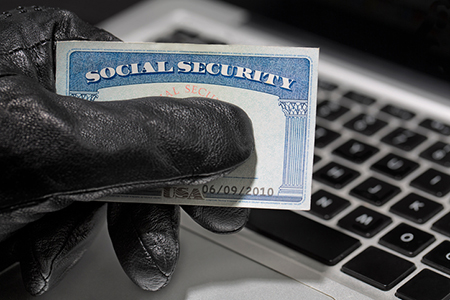If your child has a Social Security number, they can become a victim of identity theft.
With a clean credit history, a child’s Social Security number can be more valuable to a thief than an adult’s. It can be used to apply for government benefits, open bank and credit card accounts, and apply for a loan.
This could lead to a poor credit history before your child reaches age 18. A poor credit score can make it difficult to get good terms on credit, a mortgage and insurance. Some employers and landlords also pull credit reports to predict what type of risk someone might be in the future.
Here are some ways to ensure your child has a clean credit history into adulthood:
Keep documents safe
Don’t carry around your child’s birth certificate or Social Security card. Keep them locked in a fire-proof safe at home. Have your home computer updated with virus protection software.
Also be cautious about who you give your child’s identifying details to. Ask why the information is needed before giving it out. Ask if you can use a different identifier, or use the last four digits of your child’s Social Security number.
Check if your child has a credit report
Your child shouldn’t have a credit history at all before age 14, so any sign of credit history could mean fraud.
Check with the three main nationwide credit reporting companies for a free report. Start at annualcreditreport.com for a free report every 12 months.
Repair the credit report
If your child’s information is being misused, ask each credit reporting company to remove all accounts, account inquiries and collection notices from any file associated with your child’s name and Social Security number.
Also contact every business where your child’s information was misused. Ask each business to close the fraudulent account and flag it to show it came from identity theft.
You can also file a fraud report with the Federal Trade Commission.
Add a teen as an authorized user — maybe
A credit card account can’t be opened for a young child, such as age 5-10, as a way to build their credit history early and protect their identity. It could open the door to identity theft, and creating a credit file could give a family member or stranger a chance to steal the child’s credit identity.
Adding a young child to a parent’s credit card account as an authorized user is a bad idea. A clean credit history — meaning no use of credit at all — is best for children when they do apply for a credit card someday.
What you may want to do — if you’re comfortable with it — is add your child at age 15 or so as an authorized user to your credit card. This can boost their credit score if you have a good credit record.
Once they’re 18, their credit will be their responsibility. Helping them start adulthood with a clean credit history can be one of the best gifts a parent can offer.
I hope you found this information helpful. Please contact me for all your real estate needs today!











